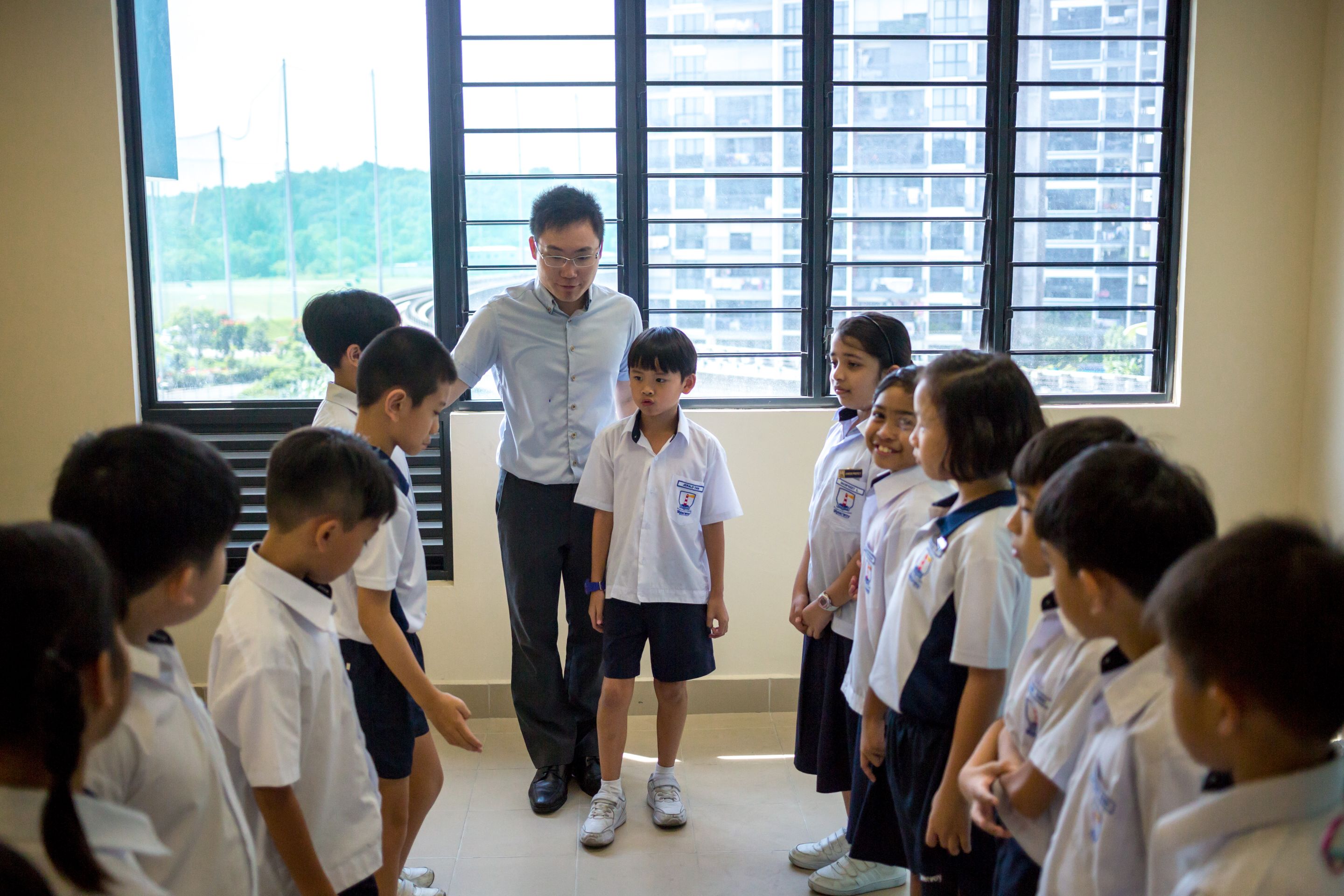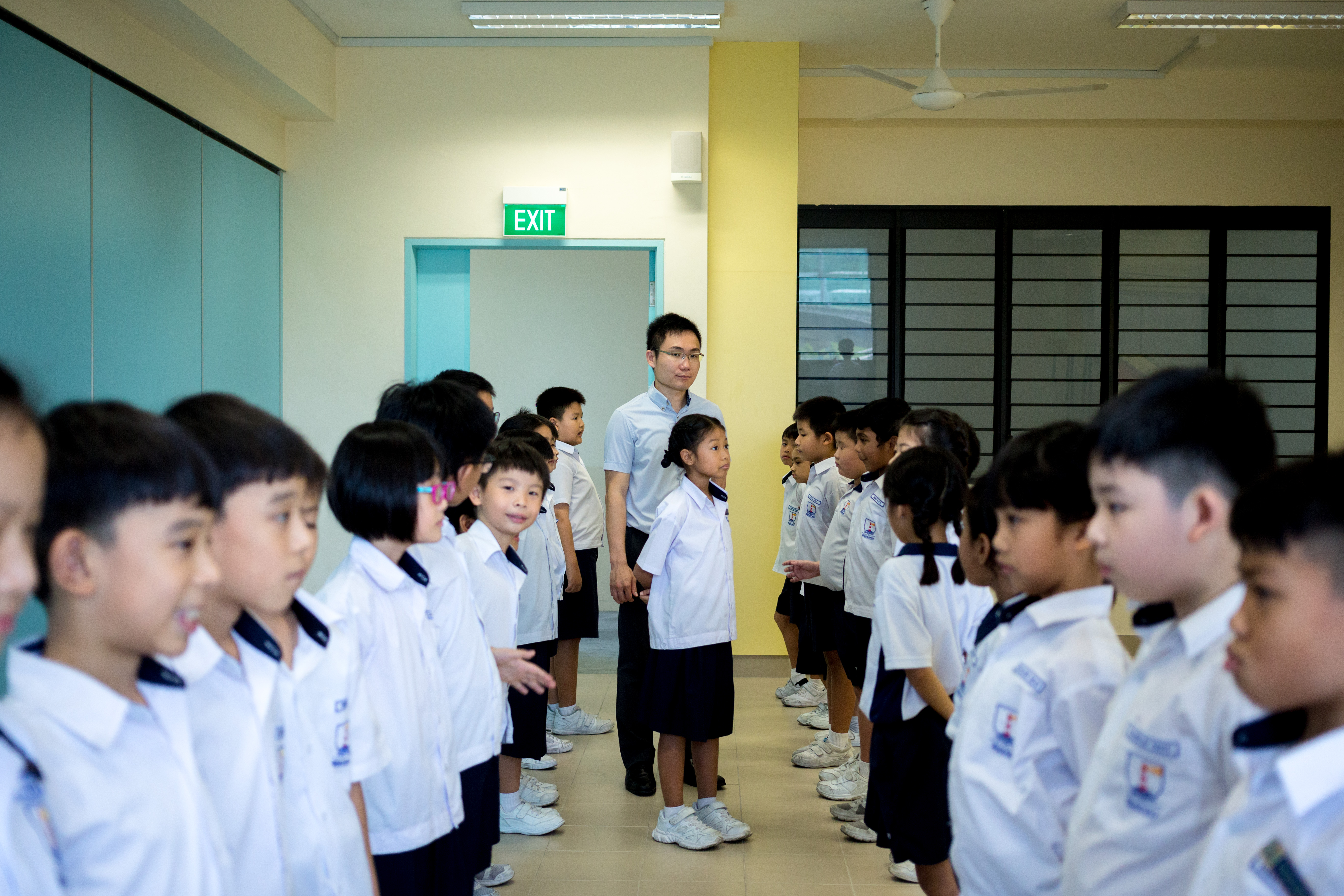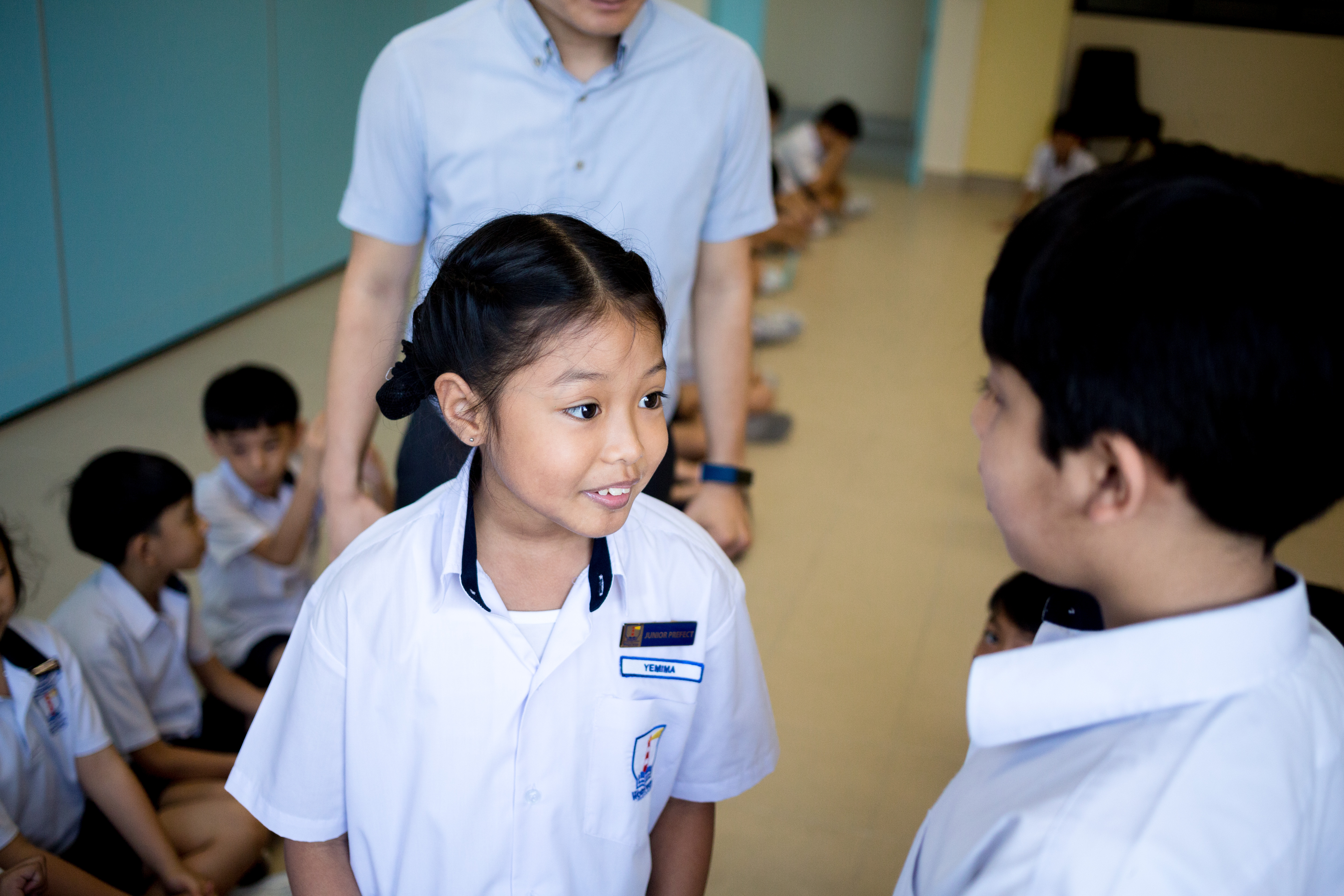English Language
LEARNING EXPERIENCES
English Language
Aim: Confident and Proficient Use of the English Language
We developed a Language Arts programme taking into account the characteristics of children in the Punggol neighbourhood, who typically come from young families and are generally articulate and well-exposed. The areas of language learning for our Language Arts programme are:
- Listening and Speaking
- Reading and Writing
- Visual representing
Adaptations are made to the widely used Strategies for English Language Learning and Reading (STELLAR) approach so as to enhance the learning of students. A whole language approach is adopted and students learn to use language in fun and meaningful ways while acquiring the critical skills of listening, speaking, reading and writing. Reading is promoted and the use of grammatical and well-structured English is emphasised.
We promote an added component in the acquisition of language arts – visually representing – which is an important mass communication skill. This is part of our aims to prepare students for work and life in future. We harness multimedia technology for the teaching and learning of visual representing.
As part of a total school curriculum, Language Arts is supported by the Orators Programme and Morning Pre-assembly sharing so that students learn beyond the classroom and prescribed books. As part of the Language Arts programme, Literature will be offered from Primary 3, so that through the subject, our students will have a window to peer out from themselves into the world of others and a mirror to hold out and learn about themselves.
English Literature
Literature is the in-depth study and analysis of literary texts. At Waterway Primary School, the discipline of Literature aims to broaden the minds of our students.
Beginning from Primary 3, Literature lessons are conducted for 2 periods every week for one semester. During the lessons, various activities customised for our students are carried out with the aim of helping them find the joy of reading and appreciate different perspectives as they learn the English language. Apart from piquing their interest in the texts, the activities also stretch our students’ imagination and develop their creativity.

From time to time, students are challenged to create different scenarios and discuss about different possibilities. The incorporation of drama activities into Literature lessons serves to nurture our students’ perspective-taking skills as well as develop in them positive traits such as empathy and understanding of selves and others. Making explicit cross-curricular links – such as with Science – help to encourage deep learning in students and direct them to view learning holistically and not as isolated subjects.

Both group work and individual work (such as reflective journal writing) are valued in our Literature curriculum because they are opportunities to develop different 21st century competencies in our students. The former enhances communication and collaboration skills while the latter nurtures critical and inventive thinking. Exposing our students to the various cultures and different beliefs in the texts also improves their global awareness and cross-cultural sensitivity.

By offering our students a window to peer into the world of others and a mirror to learn about themselves, our Literature curriculum is well-positioned to help prepare our students for work and life in the future.

